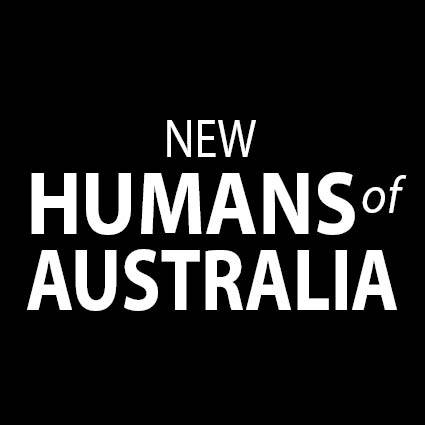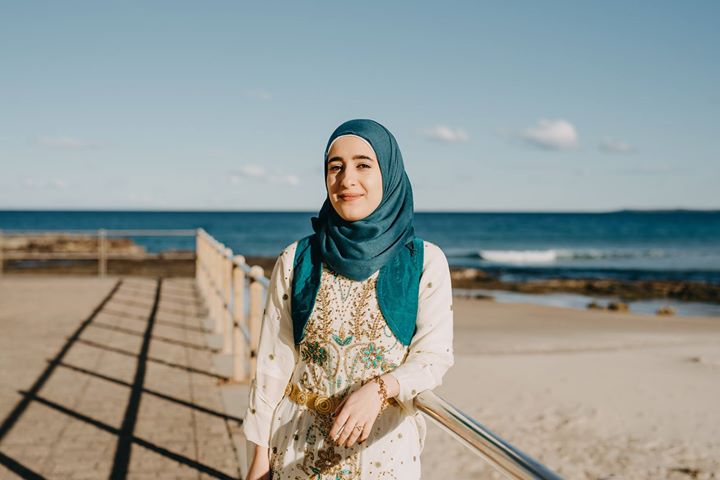Every summer holiday, we would leave Damascus to go to visit my grandparents in Aleppo. When we went to visit them in 2012, the war had started but it was still far away from us, so we didn’t worry about it. But after two weeks, just as we were about to book the ticket for the bus to take us home, our neighbour called us and said, ‘Don’t come back here – everybody is leaving!’ We thought it would just be a month but it turned out to be permanent, and we lost everything. The worst thing was losing the photos, as my dad had taken our picture every day of our childhood, since we were born.
A year later, the war started in Aleppo too, so we moved to Kobani, a Kurdish suburb in North Syria, as we have a Kurdish background. I hadn’t seen Kobani in my entire life, but when the war started I had to go back to my ‘place’. It was safe there, but it was very simple – no electricity, no running water. You actually had to buy the water to wash the dishes and take a shower, so every week we would take it in turns to have a shower, as we couldn’t afford to have one every day. Also, gas was really expensive, so we mostly used wood to cook. But even wood was expensive at that time because everyone was buying it. My family all lived in one room, but it was ok. It was actually lovely – we were all close to each other, and because my aunty was there, we didn’t feel much sadness. She looked after us.
My father couldn’t find a job in Kobani, so next we moved to Kurdistan in northern Iraq, where our cousin lived. At first, we were planning to go back to school there, but that wasn’t possible because the Department of Education said they wanted evidence that we had studied in Syria, and even though we told them our school was probably bombed, they didn’t change their mind. Also, my father’s salary only covered the rent, so my twin sister and I had to work as cashiers to help out the family, as we were the eldest of five girls. I actually enjoyed the job, but it was also hard, because in our culture it was a little bit unusual for a girl to work.
After a year and a half, the United Nations interviewed us and a few months later, we heard that Australia had accepted us as refugees. My mum was like, ‘But we don’t have any idea about Australia!’ The only thing we knew was it was really far away. I thought, ‘Oh my god, I’m not going to go there!’ I thought if I went, I’d never be able to go back to Syria. But they told us that it was possible that if we declined Australia, we might not get accepted into another country, and to go home and think about it. So we went home, and finally my mum said, ‘This is the best way for the children to continue their education and have better futures’. They were sad, but they knew if we stayed in Kurdistan we would have no future at all.
I was 16 when we arrived. On the way to Wollongong, it was so green and with so many trees, my mum was like, ‘Where are we going – are we going to a village?’ That first night was horrible, as we were tired and scared, and it was really dark outside. We had thought we’d be living in an apartment building and a house was strange for us. The next day, my mum was like, ‘I want to go back – book a flight for me, I can’t stay here anymore. Look, everything is green!’ She was scared of animals, like snakes. We told her, ‘No, just close the door, nothing will come; you will feel safe soon!’
But after a while, we started to get used to everything. We first went to the Intensive English Centre, and then to high school to do our year 11 and year 12. It was a little bit challenging at the beginning because we had missed year 10, and because the system of education was very different to Syria’s. The language was a big challenge too. But then we just got used to it and we ended up doing better! All the teachers were really proud of us because we were doing such good work.
I’ve now been accepted into a degree in International Studies at the University of Wollongong, and I plan to follow that with Law. I’m also doing a traineeship at the Department of Industry in Training Services NSW as a Customer Service Support Officer. It’s actually been a really good opportunity for me to improve myself and gain skills and experience, and everyone has been lovely and helpful. One day, I hope to work for a human rights organisation.
My little brother has no idea of what Syria was like, because he was so little when we left. I think those pictures we lost would have really helped him to have a picture in his mind about how we used to live and how happy we were.
But we are happy in Wollongong too. We used to love the noise in Syria but now we love the quiet environment, and the beautiful beaches, and all the trees!
We feel we belong here.
Yasmin
Syria
Arrived 2014
Photographer: Jodi Ward ruby & ted photography
….
I need your help! Can you offer your support to New Humans of Australia on an ongoing basis? For as little as $1 a month, you can become a patron and get all stories direct to your inbox. Or become a strong supporter for only $10 per month and get a free copy of the amazing book! Whatever you choose, it all adds up and helps me to do my work. Thank you to all my patrons, supporting the arts and supporting social change! ❤️ ❤️ ❤️
www.patreon.com/newhumansofaustralia
#worldrefugeeday #Syria #Damascus #Aleppo #Wollongong #uow #refugee #refugees #migrants #migration #war #newhome #immigration #inspiration #storiesnotstereotypes


Great story????
Wonderful story.
Yasmin – this is a beautiful story. Thank you for sharing it.
<3